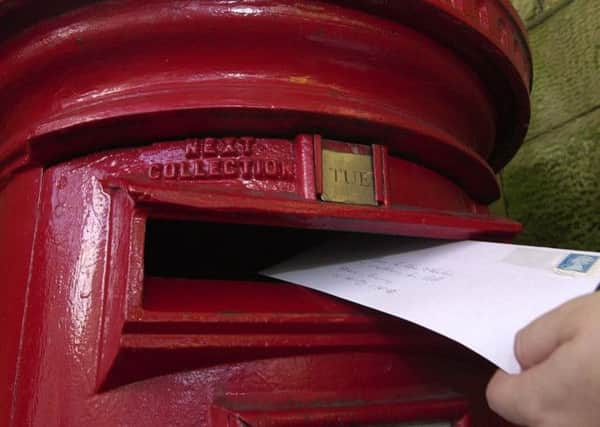Taxpayers left to count the £1bn cost of Royal Mail privatisation


The Government underestimated the value of the business and was more worried about the sell-off failing than securing the best possible price, MPs found.
Their report is also critical of the advice given to Ministers by the Shareholder Executive - a government agency - and city firms.
Advertisement
Hide AdAdvertisement
Hide AdShares in Royal Mail were sold for 330p each but the price rose rapidly to 618p per share. They were changing hands for 473p at the close of trading yesterday.
The report from the Business, Innovation and Skills Committee accepts that shares have to be discounted before going on the stockmarket but says the rise in the Royal Mail value was “significantly higher” than normal.
Ministers are also criticised for allocating shares to “priority investors” who were supposed to hold onto them for the long term but went on to sell them quickly after the company was floated.
Paul Blomfield, the Sheffield Central MP and a member of the committee, said: “This report paints a picture of incompetence and a failure to put the public interest before their enthusiasm for privatising this important public service.
Advertisement
Hide AdAdvertisement
Hide Ad“This was an enormous decision, to privatise Royal Moans which even Margaret Thatcher didn’t do, and they should have bent over backwards in ensuring they were getting the right advice.”
The Government has consistently defended its handling of the Royal Mail, arguing that industrial disputes in the company made it harder to sell at a higher price.
But today’s report concludes Ministers “over-emphasized” the risk posed by the threat of strike action and that the share price shows that “industrial relations were less of an issue for the market than they were for the Government.”
It also expresses concern that three pieces of land in London were valued at around £200 million for the sale but may have been worth up to £830 million.
Advertisement
Hide AdAdvertisement
Hide AdCommittee chairman Adrian Bailey said: “This was the most significant privatisation in years. We believe that fear of failure and poor quality advice led to a significant underestimate of the demand for Royal Mail shares.
“The Government’s inclusion of Royal Mail’s ‘surplus’ assets in the sell-off, without the prospect of clawing back future proceeds, may also mean the taxpayer losing out once again.”
The Government pre-empted the committee’s report by launching a review earlier this week of the way it privatises public assets such as Royal Mail.
Former City Minister Lord Myners will chair a panel of experts to look at alternatives to the Initial Public Offerings (IPOs) as well as looking into the so-called “book building” process used ahead of a share sale to gauge investor demand.
Advertisement
Hide AdAdvertisement
Hide AdA Business Department spokesman said: “This report rightly acknowledges that BIS achieved the Royal Mail sale objectives. It was vital to protect the Universal Postal Service - the one price goes anywhere letter delivery service, six days a week - and guard against any need for Royal Mail to request additional taxpayer support.
“The committee’s views on the share price are based entirely on hindsight and ignore that we were selling 600 million shares. They found no evidence that the department or its advisers missed vital information prior to sale.”
The spokesman said the the share price remains “volatile”.